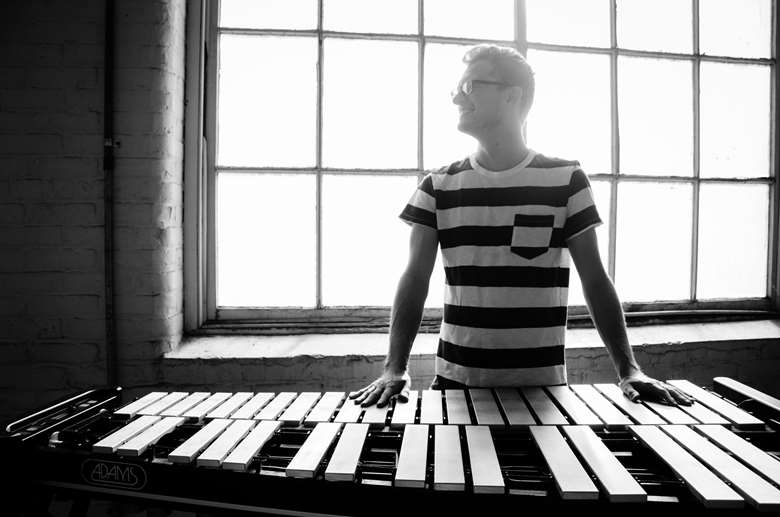Julian Loida on thinking outside the music box
Julian Loida
Thursday, May 25, 2023
Percussionist, composer, and producer Julian Loida explains how embracing imperfection and taking inspiration from other instruments informed his latest album, Giverny

What I’ve always loved about playing percussion is that it’s not about what’s outside of you, it’s about what’s inside of you. As a percussionist I play hundreds of instruments from triangles to timpani, and everything in between so adding another instrument to the bunch doesn’t seem like too big of a stretch. Percussionists are often asked to make the sounds other classical musicians don’t want to play, from slide whistles to moving our hands through water with a microphone picking up our every move. Embracing these out-of-the-box techniques on an everyday basis means I didn’t develop the internalized boundaries that other orchestral musicians might have.

I’ve played piano and electric bass for about as long as I’ve played the drums, studying bass guitar in college. I have a vivid memory of watching a video of bassist Victor Wooten in which he talks about how it’s so important for people who don’t play bass to play bass. Have someone from a completely different walk of life – someone who plays golf, perhaps - pick up the bass and see what happens. That is how we will innovate on the instrument. This concept really stuck with me and helped me affirm a more complex identity as a drummer, bassist and developing pianist. The possibility that I might give an important perspective on each instrument made it important for me to keep playing and learning.
We need to care less about how technically good we are and think more about what perspective and voice we bring to an instrument
©Joe Navas
From my first days of creating original music I’ve been writing on both vibraphone and piano. Being creative on both instruments feels very natural to me and over time, I’ve realized that the piano actually sounds more percussive than the vibraphone. Most people think of the piano as this flowing, gorgeous instrument that they can fall asleep listening to (depending on the type of music, of course) but, if that’s what you’re into, you might enjoy vibraphone music because it can be even more subtle, relaxing, and frankly healing.
During the pandemic there was a stretch of time where I didn’t have access to my vibraphone and so I started to experiment more on the piano, playing my works for vibraphone and finding I could add more colors, notes and textures. The pieces took on a new life and the piano’s larger range allowed me to bring more drama and depth to my works. On a practical level, pianos are much more accessible to practice and perform on than vibraphones, and so creating piano repertoire has the added unforeseen advantage of allowing me to tour more easily.
Many drums have tonality or a tonal relationship, which percussionists eventually learn to actualize. In my latest album, Giverny, I wanted to take this concept further, focusing on the piano’s more centered pitch. This isn’t a new technique, but it’s something I felt I could bring my unique voice to. This practice has deepened my relationship with both instruments as I continue to discover their strengths and weaknesses, using both to my advantage for expressing myself and creating textures.
The process of creating this album has shown me the exciting opportunities multi-instrumentalism presents. I recommend people read David Epstein’s book Range: How Generalists Triumph in a Specialized World which lays out a lot of the ideas I’ve touched on in this article. I think more violinists need to play the cello, more bassists need to play the violin, more flutists need to play tuba and more tubists need to play the piccolo. I think more singers need to play drums and more drummers should try their hand at writing melodies. We need to get out of our boxes, support each other in experimenting and stop this nonsense of celebrating the specialists.
Creating Giverny has taught me that we need to care less about how technically good we are at something and think more about what perspective and voice we bring to this instrument, discipline or area. It’s really scary to create and release music on an instrument you haven’t mastered, that doesn’t fit the mold and isn’t particularly virtuosic sounding, but I think that’s part of the vulnerability, the humanity and the artistry of embracing this practice. Personally, I think it sends a message to everyone that anyone and everyone can, should, and needs to play music, create, and get lost in discovery and experimentation.

Julian Loida's latest album, Giverny, is out now and can be streamed here.

